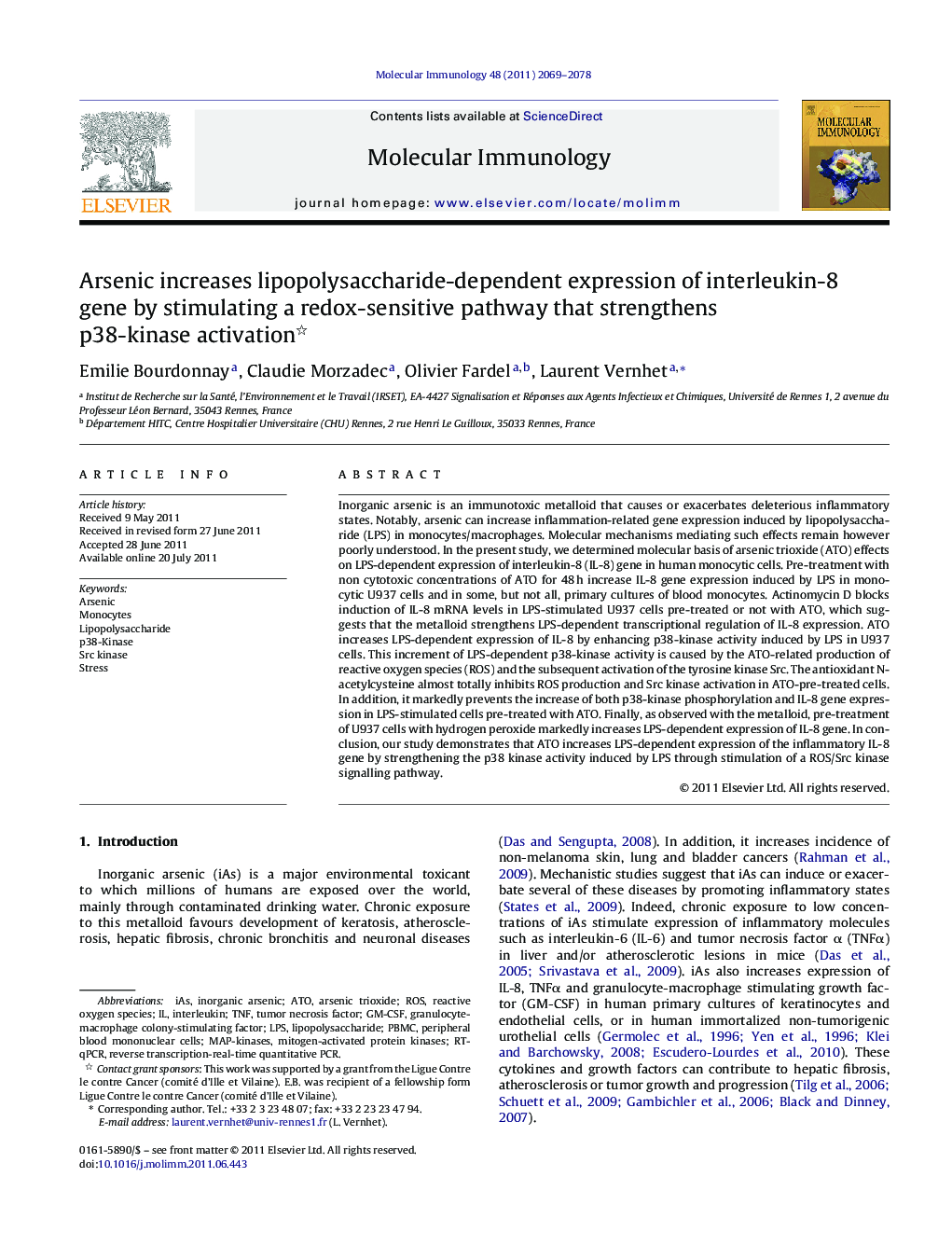| Article ID | Journal | Published Year | Pages | File Type |
|---|---|---|---|---|
| 5917820 | Molecular Immunology | 2011 | 10 Pages |
Inorganic arsenic is an immunotoxic metalloid that causes or exacerbates deleterious inflammatory states. Notably, arsenic can increase inflammation-related gene expression induced by lipopolysaccharide (LPS) in monocytes/macrophages. Molecular mechanisms mediating such effects remain however poorly understood. In the present study, we determined molecular basis of arsenic trioxide (ATO) effects on LPS-dependent expression of interleukin-8 (IL-8) gene in human monocytic cells. Pre-treatment with non cytotoxic concentrations of ATO for 48Â h increase IL-8 gene expression induced by LPS in monocytic U937 cells and in some, but not all, primary cultures of blood monocytes. Actinomycin D blocks induction of IL-8 mRNA levels in LPS-stimulated U937 cells pre-treated or not with ATO, which suggests that the metalloid strengthens LPS-dependent transcriptional regulation of IL-8 expression. ATO increases LPS-dependent expression of IL-8 by enhancing p38-kinase activity induced by LPS in U937 cells. This increment of LPS-dependent p38-kinase activity is caused by the ATO-related production of reactive oxygen species (ROS) and the subsequent activation of the tyrosine kinase Src. The antioxidant N-acetylcysteine almost totally inhibits ROS production and Src kinase activation in ATO-pre-treated cells. In addition, it markedly prevents the increase of both p38-kinase phosphorylation and IL-8 gene expression in LPS-stimulated cells pre-treated with ATO. Finally, as observed with the metalloid, pre-treatment of U937 cells with hydrogen peroxide markedly increases LPS-dependent expression of IL-8 gene. In conclusion, our study demonstrates that ATO increases LPS-dependent expression of the inflammatory IL-8 gene by strengthening the p38 kinase activity induced by LPS through stimulation of a ROS/Src kinase signalling pathway.
⢠We analyse effects of inorganic arsenic on lipopolysaccharide-induced expression of interleukin-8 in human monocytic cells. ⢠Arsenic increases interleukin-8 expression by strengthening lipopolysaccharide-dependent activity of p38-kinase. ⢠A redox-sensitive pathway involving the kinase Src mediates arsenic-dependent increment of p38-kinase activity in lipopolysaccharide-stimulated cells.
